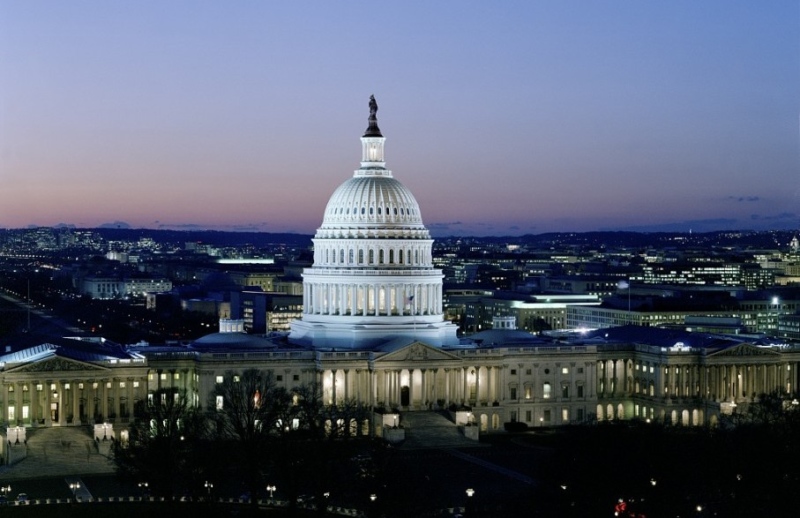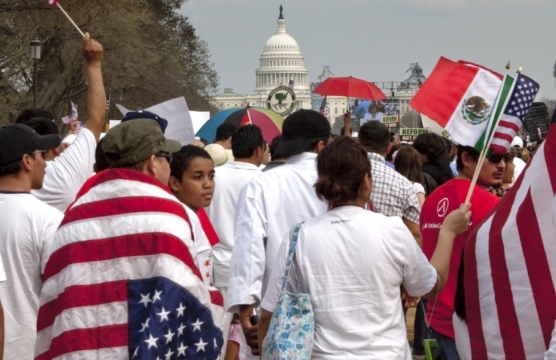Obama’s New Deportations Policy & the Future of Immigration
President Obama has overseen some of the strictest enforcement policies of the past several decades.
“The surge of child migrants from Central America has put the issue of immigration back on the table,” noted José Miguel Cruz. The unaccompanied minor crisis that gained notoriety last summer has not only emphasized the need for the US to re-envision its assistance to Mexico and Central America, but has also urged policy-makers to reconsider the regulation and status of immigrants who have already settled in the United States. With midterm elections approaching and politicians gearing up for the 2016 presidential race, there is new room for debate on the issue of immigration. Marc Rosenblum, the deputy director of the US Immigration Policy Program at the Migration Policy Institute, Rafael Fernández de Castro who served as foreign policy advisor to former Mexican president Felipe Calderon and who now teaches at Syracuse University and Jose Miguel Cruz, research director at Florida International University’s Latin American and Caribbean Center, joined the Dialogue to discuss the politics and possibilities for immigration reform.
Even though the conversation is “back on the table,” Marc Rosenblum asserted that the “out of control border has set the conversation on immigration back a decade.” In addition to the crisis, the increasingly hard-liner politics of the Republican Party have contributed to undermining the prospects for comprehensive immigration reform (CIR). “The house has been a bulwark against a CIR bill,” explained Rosenblum, “and there is nothing that we have seen during conversations that suggests that this is going to change.” Rosenblum explained that even though in the long run, it is in the interest of Republicans to back comprehensive reform in order to foster a more positive relationship with the growing Hispanic electorate, the party continues to opt for the short-term benefit of appealing to conservative voters.
Rosenblum also discussed the prospects for executive action on policy reform and warned that an expansion of Deferred Action for Childhood Arrivals (DACA) would result in a significant Republican backlash and attempt to defund legalization. Rosenblum did explain, however, that the administration could play with categories of DACA eligibility and “Priority 1” removals to keep a low profile while reducing deportation. By narrowing down U.S. Immigration and Customs Enforcement’s definition of those who “pose a danger to national security or a risk to public safety” from immigrants with minor offenses like traffic infractions to serious offenders, Obama could decrease deportations by 10%. Rosenblum also explained that lowering the educational requirements for DACA qualification could safeguard another 3.1 million immigrants against deportation. For now, however, the administration’s inertia in the face of republican dissent has prompted more liberal sates to take the issue of immigration reform into their own hands. Whereas in the past, states passed tough enforcement laws,” Rosenblum noted that at the state level, “the pendulum is now swaying the other way.”
Rafael Fernández de Castro agreed with Rosenblum’s analysis noting how “the perverse republican short term dynamic in the house of representatives” and Obama’s uncertain leadership on immigration have shaped a scenario that precludes comprehensive immigration reform.
Echoing Rosenblum, Fernández also explained that while the Latino electorate has grown, Latinos do not yet have enough electoral muscle to pressure politicians to pass immigration reform. Even though Latinos represent 18% of the population, they are a young demographic that constitutes only 11% of the electorate, and a small 4.7% of voters at the district level. Fernández ultimately explained that these dynamics coupled with the unfulfilled promise of reform have led to a paralysis in North and Central American relations.
If Cruz and Rosenblum argued that the surge of unaccompanied minors has set the conversation on immigration “back on the table” and “back a decade”, Fernández expressed more optimism for Washington’s willingness to tackle the issue of immigration. For Fernández, the child migrant crisis emphasizes the urgency of immigration reform and represents a new opportunity for engagement between Central America, Mexico and the United States in shaping a new path for immigrants towards legalization and possible citizenship.
President Obama has overseen some of the strictest enforcement policies of the past several decades.
As the global financial crisis continues to alter US relations with the hemisphere, greater engagement in the region remains critical to US interests.
Everyone recognized that the immigration system was a mess and needed to be fixed, but the politics were too polarized and complicated for any serious progress to be made.
 US Government
US Government
